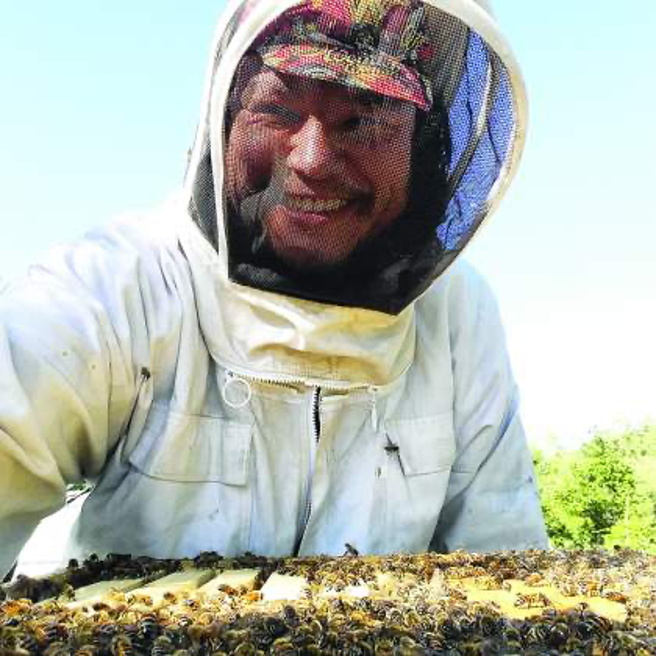Conservation
Combating honey bee decline with the Cibolo
By Maura Bobbitt
Master beekeeper Mike Mendez keeps bees at Jester King Brewery and Community First Village.

If you have ever considered beekeeping, now is the perfect time to dive into a new hobby that could have a huge impact on the environment and local food production. The Cibolo is proud to offer a virtual, in-depth workshop introducing you to the basics of beekeeping.
Mike Mendez, a master beekeeper and longtime volunteer for the Cibolo, will take you inside his own hives to show you the basics of how to get started with keeping bees. While this workshop briefly covers bee biology and disease, it is meant to truly give registrants insight into the practical components of beekeeping. Mendez will cover hive components, basic beekeeping equipment, resources on how to continue your education, and will take us on a walk-through of a hive inspection.
Mendez is passionate about sharing his knowledge about beekeeping, and we’re grateful for the continuing partnership. He also keeps bees at Jester King Brewery in Dripping Springs and at Community First Village, a tiny home community for the homeless in Austin. He often attends events at the Cibolo to share the virtues of honeybees and help spread the word about their importance to our ecosystem.
A honeybee is responsible for one of every three bites of food you eat, and they are in decline. Beekeepers have reported annual hive losses of about 30 percent over the last decade, and that number is growing. Without the honeybee, the world’s agriculture is at risk.
Honeybees are only part of the story, however. There are eight species of recognized honeybees currently, and of those only two are domesticated by humans. There are more than 20,000 species of bees, however, that pollinate native plants. Wild habitat has been severely threatened globally by herbicide and pesticide use and by the development of previously natural spaces. The good news is that we can help. The Pollinator Meadow at Herff Farm provides 20 acres of forage for native bees at the Cibolo and serves as a model for how to support local bees. A single colony of bees can pollinate 300 million flowers each day, and there is a great deal to learn from observing how they communicate and work together to find food sources. Apis mellifera, the species of honeybee in the United States, is one of only two species of honeybees that have been truly domesticated. The western honeybee, or European honeybee, has been domesticated at least since the building of the pyramids in Egypt.
This longstanding relationship between human beings and honeybees has been literally fruitful for thousands of years. If a plant has produced fruit, it has been visited by a honeybee.
There are other ways to help besides keeping bees yourself. Many pesticides cause problems for honeybees, most notably neonicotinoids. These neurotoxic pesticides kill honeybees and other pollinators that visit plants that have been treated with them. Any time you buy a new plant, make sure that it has not been treated with neonicotinoids by asking the retailer. There are organic pesticides, such as neem oil, that are nontoxic and can be used instead. Research shows that herbicides containing glyphosates could be harmful to bees in the long term as well. While not immediately toxic, they may affect honeybee navigation and gut health.
